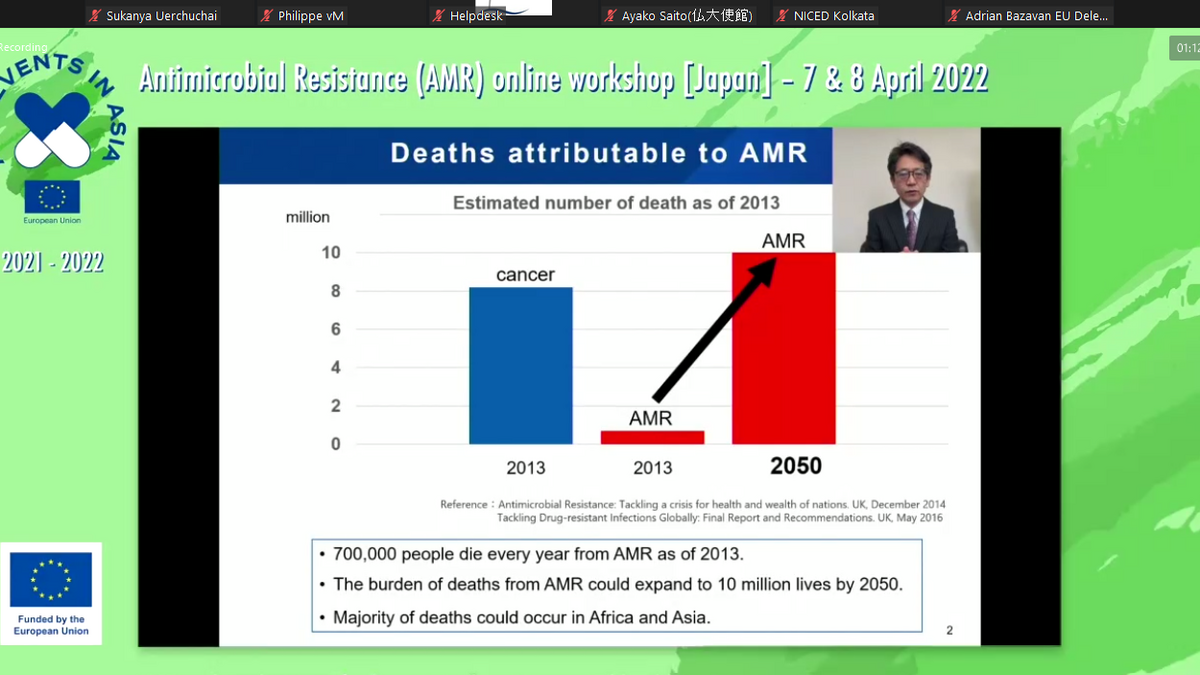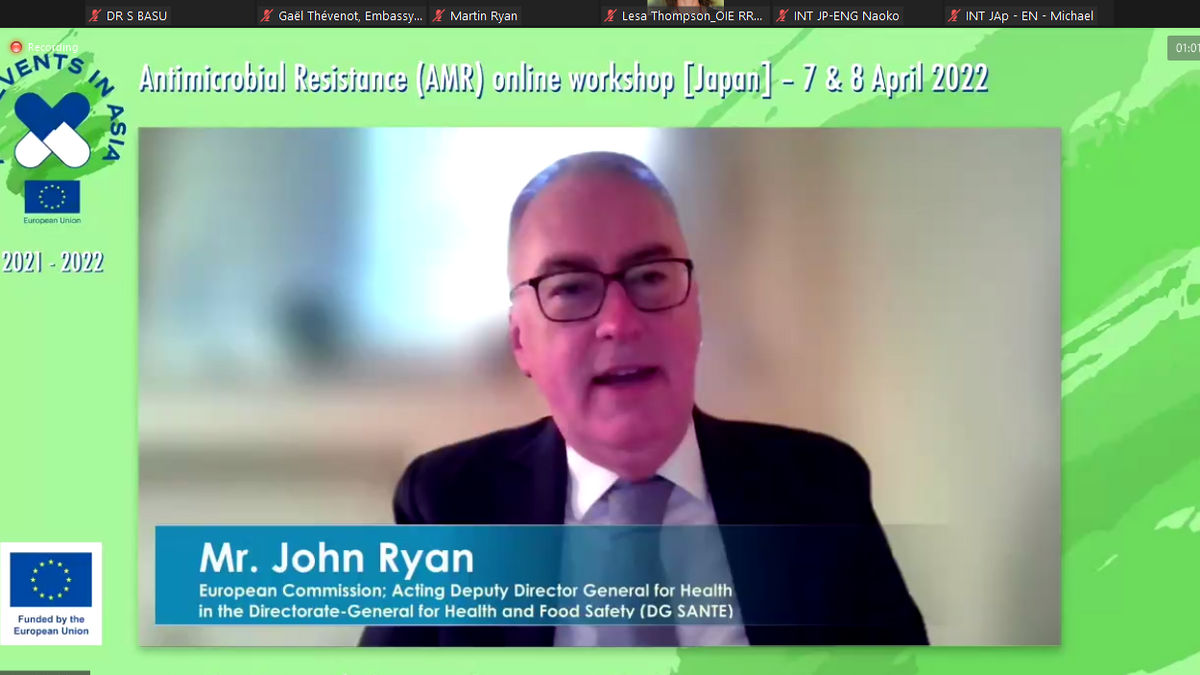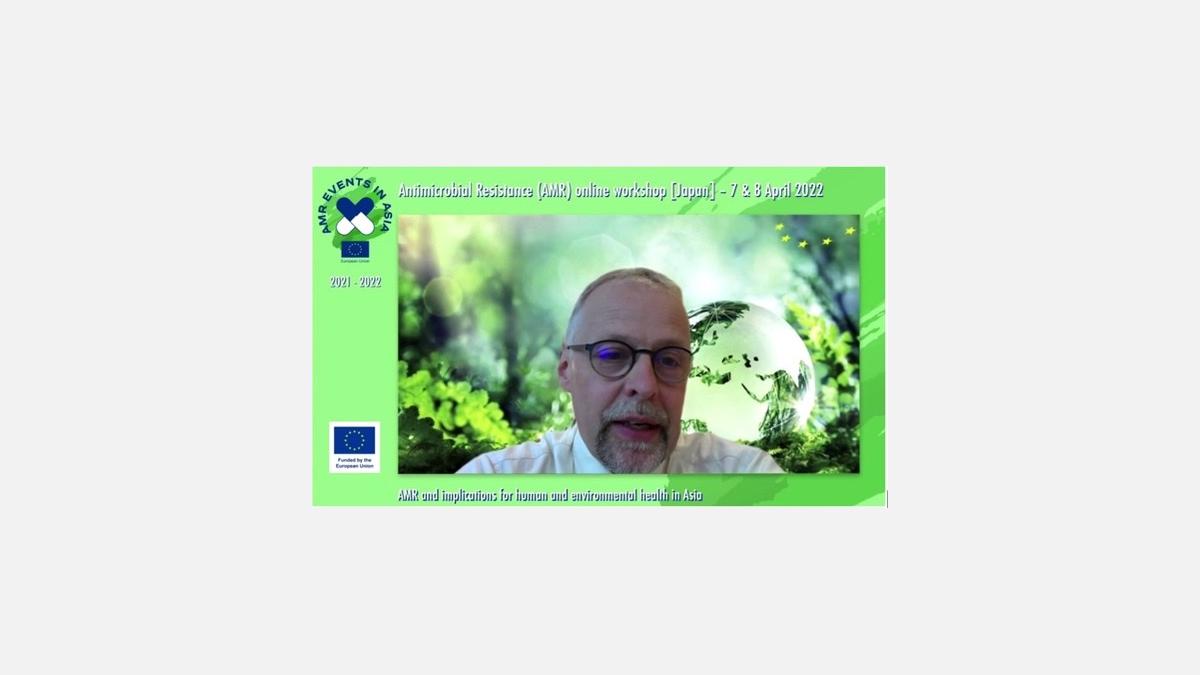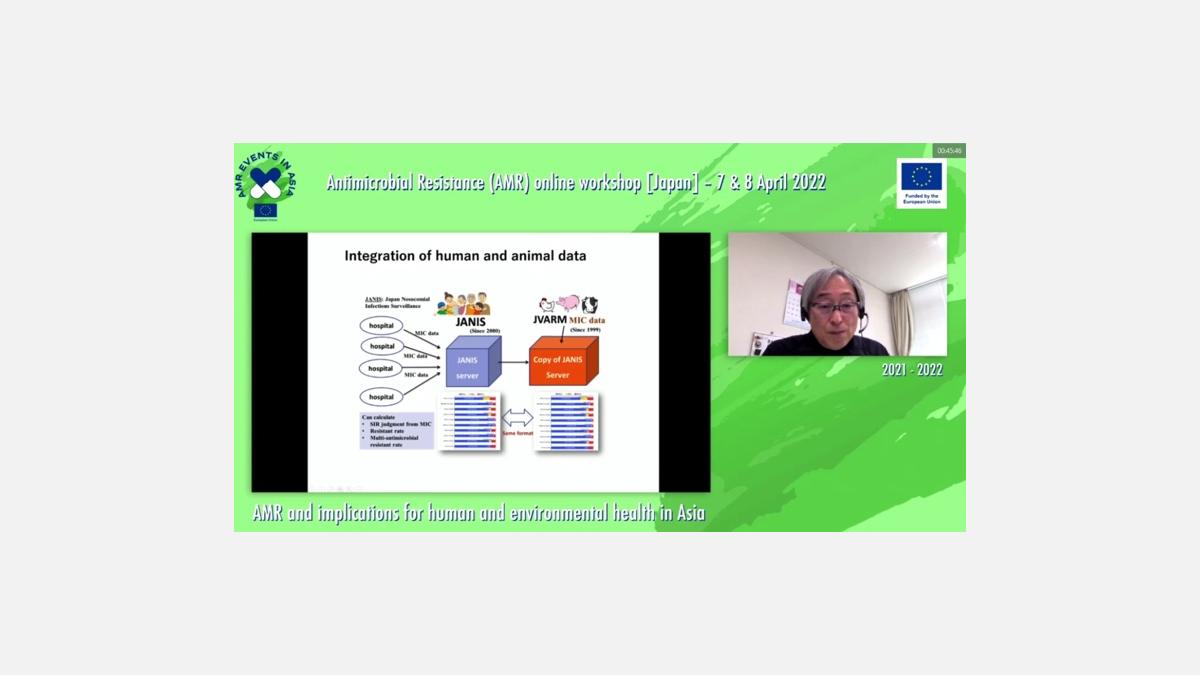Bilans d’évènement
AMR Workshop (Japan) – 7 and 8 April 2022
Day 1:
The EU-Asia Online Workshop on “Antimicrobial Resistance (#AMR) and implications for human and environmental health in Asia” started today, focusing on Japan.
“With 33,000 deaths per year in Europe and 700,000 per year in the World, the impact of AMR in the future will be more important than COVID-19. Therefore, we need more robust response to this silent pandemic and decisive coordinated efforts are needed to tackle the threat. With the “One Health” approach, each country will have to implement its national AMR action plan with more ambitious investment and promotion of AMR awareness”, said John Ryan, Acting Deputy Director-General for Health in the European Commission’s Directorate-General for Health and Food Safety (DG SANTE) during the welcome address.
During his keynote address at the EU-Asia Online Workshop on “Antimicrobial Resistance (#AMR) and implications for human and environmental health in Asia”, Dr. Yasuyuki Sahara, Director General of the Health Service Bureau at the Ministry of Health, Labour and Welfare of Japan, said that “Japan has implemented its national AMR Action Plan since 2016 and played a key role in cooperation with other countries, especially in Asia through ASPIRE: Asia-Pacific One Health Initiative on AMR”.
He emphasized that the death tolls caused by AMR “would surpass those caused by cancer soon if no serious actions committed from all countries -especially in Asia- where the two thirds of 10 million deaths would be forecasted for 2030”.
This workshop focusing on Japan will continue tomorrow 8 April 2022 and is funded by European Commission under the project “AMR activities for Asia 2021-2022”. #EUAsiaAMR2021
Day 2:
“Addressing antimicrobial resistance through the ‘One Health’ approach is really an absolute priority for the European Commission. The COVID-19 crisis has brought along a lot of thinking, but also opportunities that we need to advance in this area of AMR. Today's online workshop gives us a real chance to contribute to the ‘One Health’ national action plans which are focused on this prudent use of antimicrobials, as it also helps us to recognise and address the environment as a reservoir for this antimicrobial resistance”, said Mr.Haitze Siemers, Chargé d’Affaires a.i. at the European Union Delegation to Japan, during his opening address on the second day of the EU-Asia Online Workshop on “Antimicrobial Resistance (#AMR) implications for human and environmental health in Asia”, with a focus on Japan.
On Day 2 of the EU-Asia Online Workshop on “Antimicrobial Resistance (#AMR) and implications for human and environmental health in Asia”,Mr. Motoyuki Sugai, Director of the Drug Resistance Research Center at the National Institute of Infectious Diseases, Ministry of Health, Labour and Welfare, stressed that multiple approaches are necessary to tackle AMR: “In Japan, we focus on surveillance but education or creating awareness is very important as well. ‘One Health’ means that each sector work hard, but they need to work together. In monitoring and control, the human health is the most successful sector, but we must focus more on animal sector to have better control.”
This workshop focusing on Japan was held during 7-8 April 2022 and is funded by European Commission under the project “AMR activities for Asia 2021-2022”. #EUAsiaAMR2021
For more details, please contact pvm(@)candm.sk
More details on the work of the European Commission on AMR are available here.






